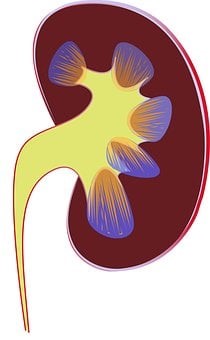Six Diet Tips to Manage Chronic Kidney Disease

If you have chronic kidney disease, your diet plays a big role in keeping your kidneys healthy and functioning properly. Here are six diet tips to help manage your chronic kidney disease. following these dietary guidelines can help keep your kidneys healthy and improve your overall health.
Drink plenty of fluids every day, including water, unsweetened juices, and decaffeinated beverages
Staying hydrated is one of the most important things for your body to remain healthy, and chronic kidney disease dieters need to pay particular attention to this. Consuming plenty of fluids each day—including water, unsweetened juices, and decaffeinated beverages—provides many essential benefits. These can range from improved cardiovascular health to keeping skin looking great. Additionally, plenty of fluids can help chronic kidney disease sufferers avoid unwanted side effects such as dizziness and fatigue. So keep replenishing your body with fluids throughout the day and you’ll soon experience that feeling of vitality within!
Choose foods that are low in sodium, potassium, and phosphorus
Making wise food choices is an important factor to keep in mind for chronic kidney disease patients. Limiting sodium, potassium, and phosphorus intake is especially critical for those looking to keep their chronic kidney disease in check. Eating foods low in these three elements is a key part of any chronic kidney disease diet and can help prevent further decline. By being mindful of the content of these elements when shopping, meal planning, and kitchen prep can be much simpler. It’s possible to still enjoy flavorful meals while reducing your overall intake of sodium, potassium, and phosphorus by utilizing the vast array of low-content options available today.
Eat a variety of fruits and vegetables every day
Eating a variety of fruits and vegetables every day is essential to staying healthy. Not only do they provide essential vitamins and minerals, but they are also full of powerful antioxidants which can help reduce the risk of chronic diseases such as chronic kidney disease. Additionally, if you are adhering to a chronic kidney diet, certain types of products can help you manage your condition more effectively by keeping your electrolytes in check. Eating a variety of different fruits and vegetables will ensure that you are getting all the nutrients that your body needs for optimal health.
Limit your intake of animal protein
Taking steps to limit your intake of animal protein can have many health benefits, especially when following chronic kidney disease diet guidelines. Eating less meat and more plant-based foods can help lower blood pressure and reduce the risk of chronic diseases such as diabetes and coronary artery disease; it can also help you maintain a healthy weight, provide essential vitamins and minerals, and decrease the consumption of saturated fats. When limiting your consumption of animal proteins, take the time to read food labels to make sure that the items you are consuming are ones that support chronic kidney disease diets—that means no added sugars, salts or unhealthy oils. Taking these small steps now can lead to long-term positive results in improving your health while still allowing you to enjoy the food that you love.
Avoid processed foods and high-sugar foods and drinks
Eating a chronic kidney disease diet is an important part of managing your health. It is important to minimize the intake of processed and high-sugar foods, such as candy, doughnuts, fries, sugary drinks, and junk food in general. Processed foods are often loaded with unhealthy salt and sugar, increasing the risk for chronic diseases like diabetes. High-sugar food and drinks send blood sugar levels on a roller coaster ride that can take a toll on energy levels and mood. Eating unprocessed whole-food meals with plenty of vegetables is a better option that can help you feel your best even while living with chronic kidney disease.
Talk to your doctor or dietitian about what else you should avoid
If you’re looking to start a chronic kidney disease diet and need some guidance, it’s important to talk to your doctor or dietitian. They can give you up-to-date advice on what and how much you should eat, as well as provide informed suggestions about what else is best avoided. Such extra information can include specific vitamins or minerals that should not be eaten in large quantities, certain cooking techniques that may improve the kidney-friendliness of certain recipes, and any other tips for maintaining a healthy chronic kidney disease lifestyle. Your doctor or dietician will also be able to answer any questions you may have about the chronic kidney disease diet so that you can get started with confidence.
Considering all of these points, it is important to create a chronic kidney disease diet that works for you. This may require some trial and error as each person’s individual needs vary. It is crucial to speak with your doctor or dietitian to get specific guidance tailored to your unique situation. By following these tips and working closely with your medical team, you can help slow the progression of chronic kidney disease.
